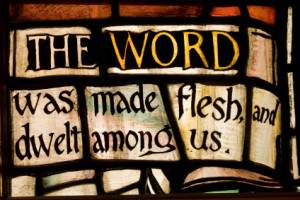 Another explanation for why bad things happen in this world is that Satan is seeking to destroy the things of God.
Another explanation for why bad things happen in this world is that Satan is seeking to destroy the things of God.
Satan is Legalistic
Satan knows that it is we whom God loves, that it is we whom God created this world for, and it is we with whom God seeks to have fellowship and relationship. So as an attack on God, Satan seeks to attack and destroy us. He does this through a variety of means. Sometimes Satan accuses us, condemns us, and brings charges against us before God, demanding that justice be served (Rev 12:10). Satan is the ultimate legalist and seeks to destroy our lives by demanding that the punishment required by the law be brought down upon our heads.
Satan Encourages Harm to Nature
Aside from seeking our destruction through a legalistic application of the law of God, Satan also uses his power and influence in this world to create chaos and conflict, inspire hatred and hostility, and instigate violence and bloodshed. All the wars, murders, rapes, and abuse in the world have been influenced by Satanic forces in some way or another. Certainly, much of the blame for these things lie at the feet of mankind, but Satan encourages these destructive behaviors and fans the flames of proud and arrogant men arguing over land, possessions, privilege, and power. Satan seeks only to destroy . War, bloodshed, and fighting are among his favorite methods.




 The death of Jesus on the cross is the pinnacle and apex of the incarnation. It is His most triumphal moment. Which of us would seek to take it from Him and say, “No, no! Jesus! You cannot die a criminal’s death! You are innocent! That is only for guilty people. You must live! You must rule! You must reign! You must act like God!”
The death of Jesus on the cross is the pinnacle and apex of the incarnation. It is His most triumphal moment. Which of us would seek to take it from Him and say, “No, no! Jesus! You cannot die a criminal’s death! You are innocent! That is only for guilty people. You must live! You must rule! You must reign! You must act like God!”
 Forget for a moment that you live 2000 years after the death of Jesus Christ on the cross, and forget that you have the New Testament which tells you about who Jesus was and what He did. Imagine that you pick up an ancient history book and it tells you about three men who were put to death around 33 BC for religious and political crimes. Two of them were criminals and one was a rabble-rouser, a trouble-maker, and a blasphemer. If you knew nothing else about these three men, you would assume they were most likely guilty.
Forget for a moment that you live 2000 years after the death of Jesus Christ on the cross, and forget that you have the New Testament which tells you about who Jesus was and what He did. Imagine that you pick up an ancient history book and it tells you about three men who were put to death around 33 BC for religious and political crimes. Two of them were criminals and one was a rabble-rouser, a trouble-maker, and a blasphemer. If you knew nothing else about these three men, you would assume they were most likely guilty.

 We typically think of the incarnation as something that happened only when Jesus Christ became human, that is, when He was born of a virgin, grew up as a boy under the parentage of Joseph and Mary, became a man, and then lived, taught, ministered, suffered, and died. Strictly speaking, this is probably true. The definition of “incarnate” is “to become flesh.” So prior to the coming of Jesus Christ in the flesh, it is not exactly accurate to say that God was in the flesh—that God was human. God only became human when He entered the womb of a woman and grew up as a human, just like one of us.
We typically think of the incarnation as something that happened only when Jesus Christ became human, that is, when He was born of a virgin, grew up as a boy under the parentage of Joseph and Mary, became a man, and then lived, taught, ministered, suffered, and died. Strictly speaking, this is probably true. The definition of “incarnate” is “to become flesh.” So prior to the coming of Jesus Christ in the flesh, it is not exactly accurate to say that God was in the flesh—that God was human. God only became human when He entered the womb of a woman and grew up as a human, just like one of us.
 One common objection to the proposal I am making in my series on how to understand the violence of God in the Old Testament (see the link list below) is that this view seems to make God out to be a liar.
One common objection to the proposal I am making in my series on how to understand the violence of God in the Old Testament (see the link list below) is that this view seems to make God out to be a liar.